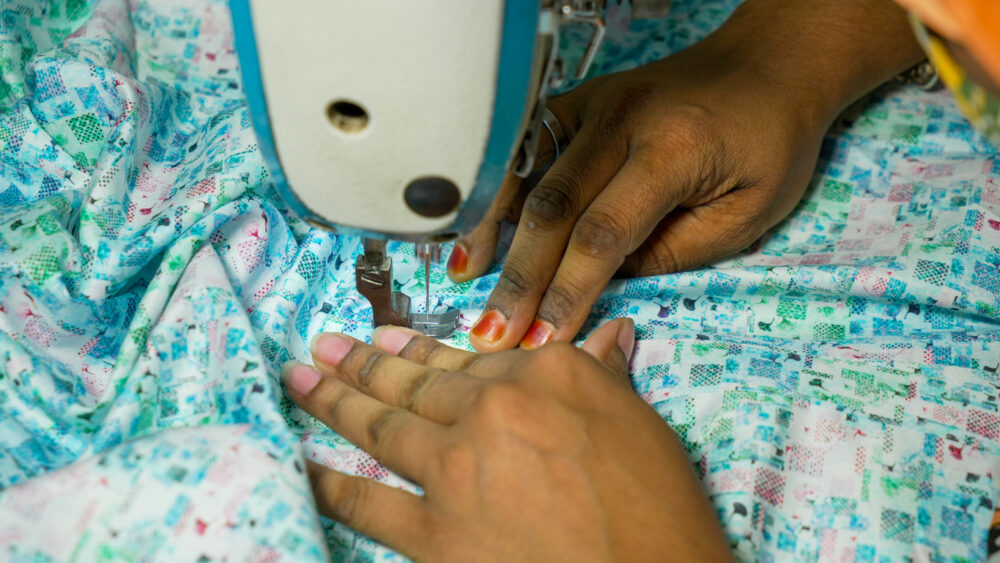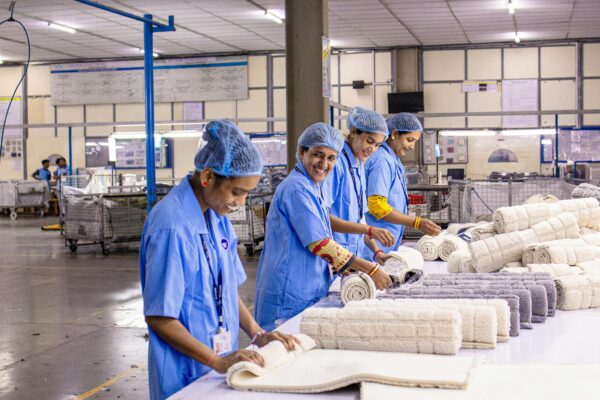আজ, আমরা যখন ২০২৫ সালের বিশ্ব স্বাস্থ্য ও নিরাপত্তা দিবস পালন করছি, তখন আমাদের জন্য আমাদের সম্প্রদায়, কর্মক্ষেত্র এবং জীবনে স্বাস্থ্য ও নিরাপত্তার গুরুত্ব নিয়ে চিন্তা করার একটি সুযোগ।
আন্তর্জাতিক শ্রম সংস্থার (আইএলও) তথ্য অনুসারে, কর্মক্ষেত্রে আঘাত এবং মৃত্যু উল্লেখযোগ্য হুমকি তৈরি করে। আইএলও অনুমান করে যে প্রতি বছর, কর্মক্ষেত্রে আঘাত এবং রোগে প্রায় ৩০ লক্ষ শ্রমিক মারা যায়, লক্ষ লক্ষ মানুষ অ-প্রাণঘাতী দুর্ঘটনার শিকার হচ্ছে। এই পরিসংখ্যানগুলি শক্তিশালী নিরাপত্তা ব্যবস্থার জরুরি প্রয়োজনীয়তা তুলে ধরে, কারণ কর্মক্ষেত্রে দুর্ঘটনার প্রতিক্রিয়া কেবল ব্যক্তিদের জন্যই নয়, পরিবার এবং প্রতিষ্ঠানের জন্যও গভীর।
যদিও অনেক প্রতিষ্ঠান স্বাস্থ্য ও নিরাপত্তা ব্যবস্থায় বিনিয়োগ করে এবং আঘাতের জন্য ক্ষতিপূরণ প্রদান করে, তবুও কঠোর বাস্তবতা হল যে কেবল মজুরিই ক্ষতিপূরণ দিতে পারে না। শারীরিক আঘাত দীর্ঘমেয়াদী অক্ষমতা বা স্বাস্থ্যগত সমস্যার কারণ হতে পারে যা জীবনের মানকে নেতিবাচকভাবে প্রভাবিত করে; কোনও পরিমাণ অর্থই ব্যথা বা কষ্ট মুছে ফেলতে পারে না। কর্মক্ষেত্রে দুর্ঘটনার ফলে উদ্বেগ এবং হতাশার মতো মানসিক আঘাত দেখা দিতে পারে, যা দেখায় যে আর্থিক ক্ষতিপূরণ প্রায়শই সত্যিকার অর্থে ক্ষতিপূরণ দিতে পারে না। যখন কোনও প্রিয়জন গুরুতর আহত হয় বা দীর্ঘস্থায়ী স্বাস্থ্য সমস্যার সম্মুখীন হয় তখন স্বাস্থ্য ও নিরাপত্তার ব্যর্থতা পরিবারগুলিকে মানসিক এবং আর্থিকভাবেও প্রভাবিত করতে পারে।
স্বাস্থ্য ও নিরাপত্তার সমস্যাগুলি দ্রুত সমাধানের মাধ্যমে সমাধান করা যাবে না। এর জন্য একটি নিয়মতান্ত্রিক পদ্ধতির প্রয়োজন যার মধ্যে সংশ্লিষ্ট ঝুঁকিগুলির গভীর ধারণা অন্তর্ভুক্ত। এই পদক্ষেপগুলির মধ্যে রয়েছে আইন ও বিধিমালা মেনে চলা, নীতি উন্নয়ন, ঝুঁকি মূল্যায়ন এবং পদ্ধতি উন্নয়ন, প্রশিক্ষণ এবং সচেতনতা, পর্যবেক্ষণ এবং প্রতিবেদন তৈরি এবং ক্রমাগত উন্নতি।
ওয়ার্ল্ড রেসপন্সিবল অ্যাক্রেডিটেড প্রোডাকশন (WRAP) কর্মক্ষেত্রের নিরাপত্তা বৃদ্ধিতে একটি গুরুত্বপূর্ণ ভূমিকা পালন করে, যার মাধ্যমে সার্টিফাইড সুবিধাগুলিকে নীতিগত এবং পরিচালনাগত মান মেনে চলতে বাধ্য করা হয়। WRAP তার দ্বারা পরিচালিত হয় 12 নীতি, যা মানবসম্পদ ব্যবস্থাপনা, স্বাস্থ্য ও নিরাপত্তা, পরিবেশগত অনুশীলন এবং আইনি সম্মতি - আমদানি, রপ্তানি, শুল্ক সম্মতি এবং নিরাপত্তা মান সহ অন্তর্ভুক্ত করে।
এগুলো সরবরাহ শৃঙ্খল ব্যবস্থাপনায় দায়িত্বশীল ব্যবসায়িক অনুশীলন এবং স্থায়িত্ব প্রচারের জন্য তৈরি। স্বাস্থ্য ও নিরাপত্তা (নীতি ৮) নিয়মিত নিরীক্ষার মাধ্যমে বিশেষজ্ঞদের একটি দক্ষ ও দক্ষ দলের দ্বারা সামগ্রিক স্বাস্থ্য ও নিরাপত্তা ব্যবস্থাপনা ব্যবস্থার একটি বিস্তৃত এবং স্বাধীন মূল্যায়ন প্রদান করে। এটি গ্রাহকদের বিশ্বাসযোগ্য এবং বিশ্বাসযোগ্য তথ্য প্রদান করে তাদের অবগত সিদ্ধান্ত নিতে সক্ষম করে।
এর কার্যকারিতার প্রমাণ হিসেবে, বিশ্বব্যাপী ৪০ লক্ষেরও বেশি কর্মী WRAP-প্রত্যয়িত সুবিধাগুলি ব্যবহার করেছেন।। এই উল্লেখযোগ্য অর্জন কর্মীদের উপর স্বাস্থ্য ও নিরাপত্তা নীতিমালার সম্মতির গুরুত্ব এবং এর ইতিবাচক প্রভাবের উপর জোর দেয়। কর্মক্ষেত্রে স্বাস্থ্য ও নিরাপত্তা একটি উৎপাদনশীল পরিবেশের অমূল্য দিক। এটিকে অগ্রাধিকার দেওয়া কেবল একটি আইনি বাধ্যবাধকতা নয়; এটি একটি নৈতিক ও নীতিগতভাবে সুদৃঢ় ব্যবসায়িক অনুশীলনকে অন্তর্ভুক্ত করে।
ঝুঁকি মূল্যায়ন এবং পর্যায়ক্রমিক নিরীক্ষা অন্তর্ভুক্ত করে একটি সক্রিয় পদ্ধতি গ্রহণ করে, সংস্থাগুলি স্বাস্থ্য ও নিরাপত্তার সংস্কৃতি গড়ে তুলতে পারে যা কর্মীদের সুরক্ষা দেয় এবং উৎপাদনশীলতা বৃদ্ধি করে। সম্পদের উচিত একটি অনুকূল কর্মপরিবেশ তৈরির উপর দৃষ্টি নিবদ্ধ করা, কারণ স্বাস্থ্য ও নিরাপত্তা অবহেলার প্রকৃত মূল্য আর্থিক ক্ষেত্রের বাইরেও যায় - এটি সরাসরি মানুষের জীবনকে প্রভাবিত করে। কর্মক্ষেত্রে স্বাস্থ্য ও নিরাপত্তার উপর আপনি মূল্য নির্ধারণ করতে পারবেন না।
বিনয় সাক্সেনা ভারতের WRAP অপারেশনস বিভাগের প্রধান এবং অডিটর ট্রেনিং-এর ব্যবস্থাপক হিসেবে দায়িত্ব পালন করছেন। জনাব সাক্সেনা বিভিন্ন ব্যবস্থাপনা মানদণ্ডে হাজার হাজার অডিট সফলভাবে পরিচালনা করেছেন এবং তার অভিজ্ঞতা বিশ্বব্যাপী অসংখ্য প্রশিক্ষণ সেশনের মধ্যে বিস্তৃত। মিঃ সাক্সেনা ২০১৮ সালে WRAP-তে যোগদান করেন এবং ২২ বছরেরও বেশি সময় ধরে বিভিন্ন অভিজ্ঞতার অধিকারী।




